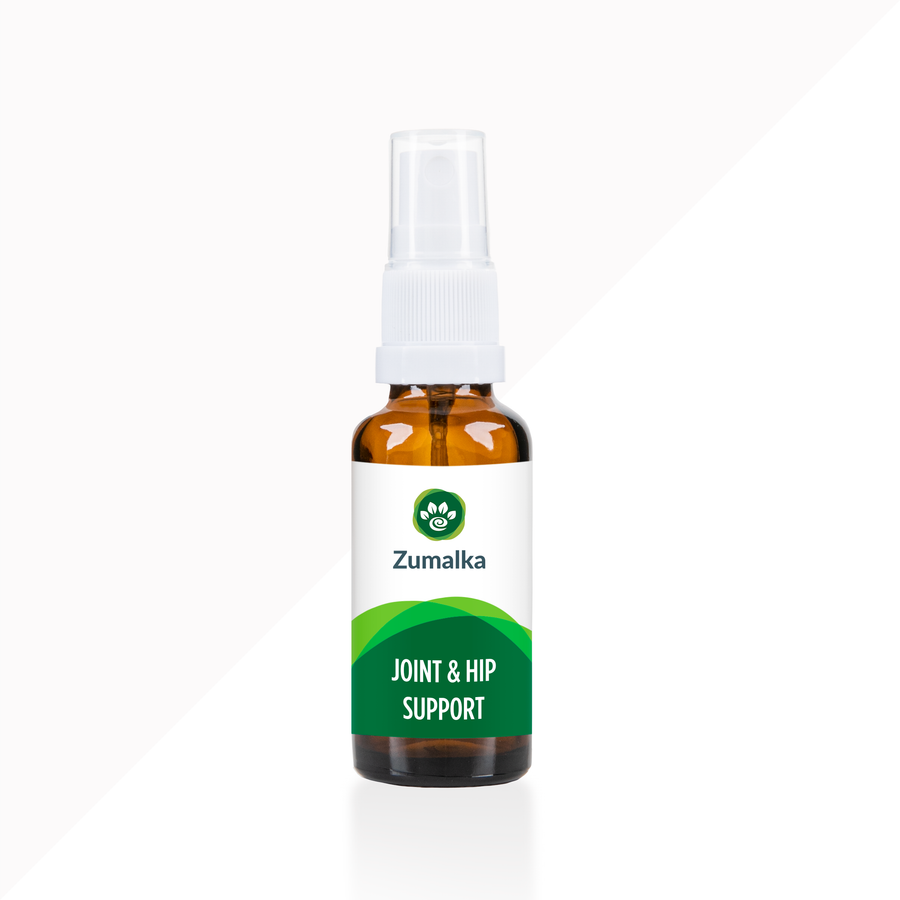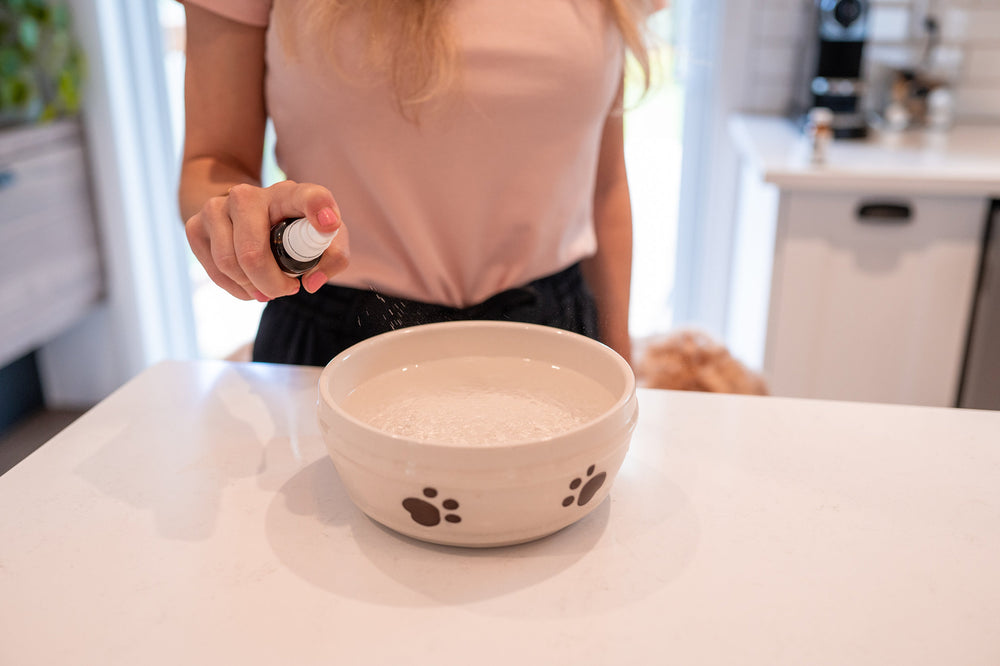The Ultimate Vet-Approved Guide to Senior Corgi Joint Care
List of Contents
Pembroke Welsh Corgis are known for their big personalities, fearless spirit, and undeniable charm. As they grow older, ensuring their golden years are comfortable and pain-free becomes a top priority.
With their long backs and short legs, Corgis have a distinctive build caused by a genetic condition known as chondrodysplasia. While this trait contributes to their signature charm, it also increases their risk of joint and spinal problems as they age. Recognizing these vulnerabilities is key to supporting your senior Corgi’s mobility, comfort, and overall quality of life.
This guide offers a clear, vet-approved list of dos and don’ts to help you care for your senior Corgi’s joints. With practical tips and proven strategies, you’ll be better equipped to preserve their mobility, comfort, and quality of life.
Why Senior Corgis Are at Higher Risk for Joint Problems

As mentioned, Corgis are genetically built with long backs and short legs, a combination that places added stress on their joints and spine over time. This distinctive structure makes them more vulnerable to mobility issues, especially as they enter their senior years.
- Corgis are especially prone to Intervertebral Disc Disease (IVDD) because of their long spine and short-legged build. This serious condition occurs when a disc slips or ruptures, pressing on the spinal cord and potentially causing pain, mobility loss, or even paralysis.
- Hip and elbow dysplasia are inherited conditions where joints form abnormally, causing pain, stiffness, and early-onset arthritis. Corgis are particularly at risk, ranking among the top 15 breeds for elbow dysplasia, with approximately 16.6% of them affected.
- Osteoarthritis is a common age-related condition in senior Corgis, caused by the gradual breakdown of joint cartilage. It’s often worsened by underlying issues like hip or elbow dysplasia and excess weight, leading to pain, stiffness, and reduced mobility.
Key signs of joint pain in older Pembroke Welsh Corgis
One of the earliest signs of joint pain in Corgis is noticeable stiffness or limping, especially after rest or first thing in the morning. These symptoms may indicate inflammation or early-stage arthritis, and should not be ignored as your Corgi ages.
Reluctance to jump, climb stairs, or participate in favorite activities can be a clear sign of joint pain or discomfort in your Corgi. More serious symptoms, like a hunched back, vocalizing in pain, or abnormal movement patterns such as “bunny hopping,” may indicate advanced joint or spinal issues that require veterinary attention.
Joint pain in Corgis can also show up as subtle behavioral changes, such as increased irritability or a noticeable preference for rest over activity. These shifts in mood or energy often reflect underlying discomfort and are important early warning signs not to overlook.
Senior Corgi Joint Care: 6 Proactive Do’s for Lifelong Mobility

Supporting your senior Corgi’s joint health starts with proactive, everyday choices that promote comfort and mobility. These expert-backed do’s can help reduce pain, slow joint degeneration, and keep your Corgi active well into their golden years.
#1. Start joint supplements early and consistently
Look for joint supplements that contain glucosamine and chondroitin, which work together to support cartilage and cushion your Corgi’s joints. Collagen is another key ingredient, known to reduce inflammation and improve cartilage health, making it especially beneficial for senior dogs.
Omega-3 fatty acids, commonly found in fish oil, have powerful anti-inflammatory properties that help maintain joint flexibility and comfort in senior Corgis. Regular supplementation supports a healthy inflammatory response, making it an essential part of long-term joint care.
Curcumin, a powerful natural extract from turmeric, helps reduce inflammation and ease joint discomfort in senior Corgis. When used regularly, it can support long-term mobility and enhance overall joint health.
#2. Meticulously manage your aging dog’s weight
Keeping your senior Corgi at a healthy weight is essential, as extra pounds put unnecessary strain on their joints and spine. Obesity can worsen arthritis, trigger back issues, and speed up the progression of joint deterioration.
Even a slight weight gain can put added pressure on a Corgi’s long, low back, increasing the risk of joint strain and spinal issues. To help manage weight and support mobility, choose a high-quality, age-appropriate diet, preferably a lean senior formula.
#3. Provide regular, low-impact workouts
Regular, low-impact exercise is essential for senior Corgis to maintain muscle strength, which plays a key role in supporting joint health. Gentle activities like daily walks or slow, controlled play help keep them mobile without placing excess strain on their joints.
Consistent, gentle activity helps prevent stiffness and keeps your senior Corgi’s joints flexible and functional. Low-impact options like swimming or water therapy are especially effective, providing movement without adding stress to aging joints.
Mental enrichment is vital for senior Pembroke Welsh Corgis, helping to keep their minds sharp and spirits high. Regular cognitive stimulation can slow age-related decline and reduce the risk of anxiety and depression.
#4. Schedule biannual vet check-ups
For senior Corgis, biannual veterinary checkups, including routine blood work, are essential for detecting age-related health issues early. Regular screenings help monitor organ function and allow for timely intervention to keep your dog healthy and comfortable.
Routine vet visits also provide opportunities for expert nutritional guidance, early detection of joint pain, and personalized care planning. These regular checkups ensure your senior Corgi gets the proactive support needed to stay healthy and comfortable as they age.
#5. Consult a certified pet homeopath

Every animal is unique, just like every person, which means their health care should be, too. A professional pet homeopath works to identify the root cause of illness and selects remedies tailored to how your pet experiences their condition, not a one-size-fits-all solution.
Just to emphasize, pet homeopathy can also be safely used alongside conventional veterinary treatments, offering natural support without requiring you to choose between approaches.
#6. Adapt your home to be joint-friendly
Making your home joint-friendly is key to protecting your Corgi’s spine and preventing unnecessary strain. Using ramps or pet stairs can reduce the impact of jumping on and off furniture, helping to lower the risk of injuries like Intervertebral Disc Disease (IVDD).
Senior Corgi Joint Care: Common Don’ts to Avoid

Caring for a senior Corgi means knowing not just what to do, but also what to avoid. These common mistakes can worsen joint issues, reduce mobility, and impact your dog’s long-term comfort and quality of life.
Don’t overfeed your aging Pembroke Welsh Corgi
The Corgis' small size makes them especially vulnerable to weight gain from overfeeding or frequent treats. Even a small amount of human food can make up a large share of their daily calorie needs, so it’s important to treat it mindfully and in moderation.
Feeding table scraps or “people food” can contribute to weight gain and disrupt your Corgi’s nutritional balance. Avoid free-feeding as well. Scheduled meals make it easier to manage portion sizes and maintain a healthy weight.
Don’t encourage your older dog to do high-impact jumps
Discourage your senior Corgi from jumping off furniture or other elevated surfaces, as high-impact landings can strain their joints and damage their spine. Even seemingly small jumps can increase the risk of injury, especially in dogs prone to conditions like IVDD.
Don’t ignore the early signs of discomfort
Never ignore early signs of joint discomfort in your senior Corgi, such as limping, stiffness, or reluctance to move. Prompt intervention can reduce pain, slow the progression of joint disease, and significantly improve long-term mobility.
If your Corgi experiences sudden paralysis, severe pain, or can’t walk, contact your veterinarian immediately. These may be signs of a serious spinal condition like IVDD that requires prompt medical attention.
Don’t give your aging Corgi supplements without expert approval
Always consult your veterinarian or a certified pet homeopath before giving your Corgi any supplements. Incorrect formulations or dosages can do more harm than good, especially in senior dogs with existing health concerns.
The Bottomline
Caring for a senior Corgi’s joints requires consistent attention and proactive support throughout their life. By combining weight management, low-impact exercise, early joint supplementation, regular veterinary checkups, and ongoing pet homeopathy consultations, you can help preserve their mobility and improve their overall quality of life.
With your care and attention, your loyal Corgi can enjoy their golden years with comfort, personality, and plenty of love. Every thoughtful choice you make supports their health, happiness, and the special bond you share.
FAQs
What are the best joint supplements for a senior Corgi?
Choose joint supplements that include scientifically backed ingredients like collagen, glucosamine, chondroitin, Omega-3s from fish oil, and curcumin. Always consult your veterinarian or a certified pet homeopath before introducing any new supplement to your Corgi’s routine.
How much exercise does a senior Corgi need?
Senior Corgis need consistent, low-impact exercise, such as daily walks or gentle jogs, to support joint mobility and maintain muscle strength. To protect their spine and joints, avoid high-impact activities like jumping or rough play.
My Corgi seems stiff in the morning. Is this arthritis?
Stiffness after rest is a common early sign of arthritis or joint problems in dogs, especially as they age. A thorough evaluation by your veterinarian or certified pet homeopath is essential to diagnose the issue accurately and create an effective treatment plan.
Do corgis need joint supplements?
Yes, Corgis can benefit from joint supplements, especially as they age. Supplements with glucosamine, chondroitin, collagen, and Omega-3s support joint health, reduce inflammation, and help maintain mobility in senior Corgis.
How do I help my senior dog with joint pain?
To help your senior dog with joint pain, focus on weight management, low-impact exercise, joint supplements, regular veterinary checkups, and consistent pet homeopathy consultations. Early intervention and a tailored care plan can greatly improve mobility, comfort, and quality of life.
Do corgis have joint problems?
Yes, Corgis are prone to joint problems due to their long backs and short legs. Conditions like arthritis, hip dysplasia, and IVDD are common, especially in senior Corgis without proactive joint care.
What can I give my dog to support joints?
To support your dog’s joints, consider supplements with glucosamine, chondroitin, collagen, Omega-3 fatty acids, and curcumin. These ingredients promote cartilage health, reduce inflammation, and improve mobility, especially beneficial for aging or active dogs.









Leave a comment